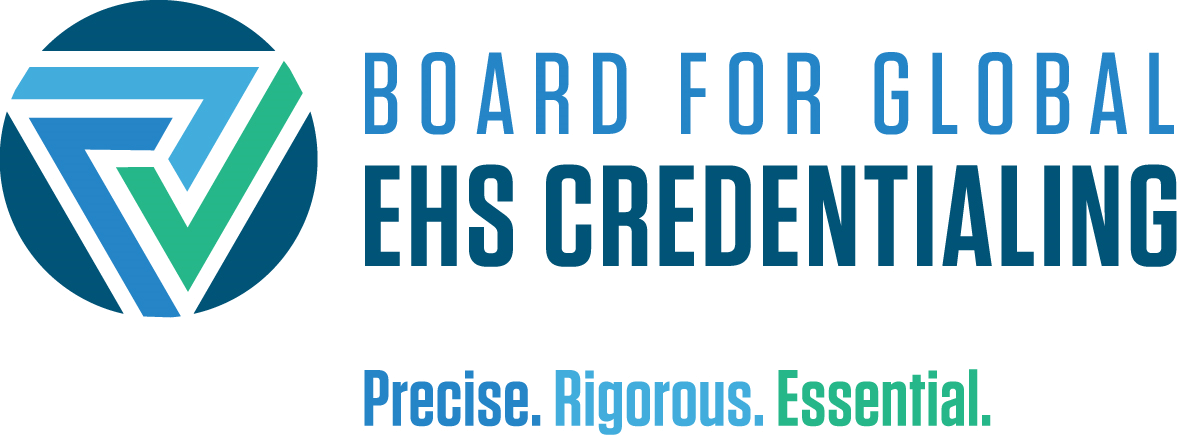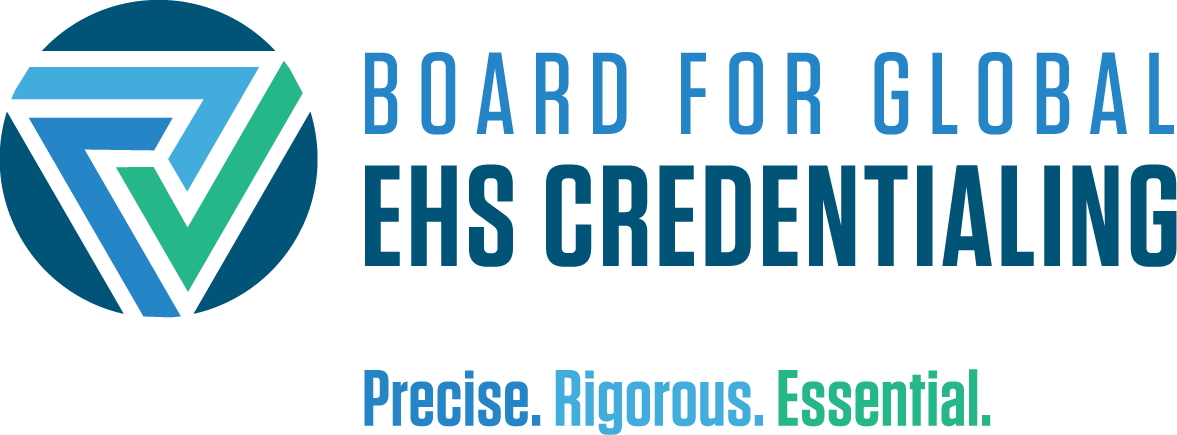CAIH/CIH CM Point Categories
CAIH/CIH Category 1 – Active IH Practice
| CM Cycle Points | |||
| CAIH Practice | Claim | Minimum | Maximum |
|
≥ 20%
|
2 points/12 months
|
None | 10 |
|
<20%
|
0 points | ||
Description:
BGC does not ask that Diplomates keep precise work history records, but CM credit claimed in Category 1 should be consistent with the Diplomate’s work activities and job responsibilities.
BGC believes that the IH professional boundaries are constantly in flux as practitioners do more with their knowledge and skills and as the profession adapts to changing business and population needs. Consequently, exact definitions of what IH is, or is not, do not exist. In general, if the work aligns with the CIH Exam Subject Areas (Rubrics) or Blueprint, it can be counted as IH. Diplomates are advised to consult with BGC if there are any questions about their professional practice areas.
Records:
Acceptable records include but are not limited to:
- Any documentation showing company logo or letterhead, bearing the Diplomate’s name and organizational title.
- Correspondence from the employer (past or current) attesting the Diplomate’s work history dates and job responsibilities in a company.
CAIH/CIH Category 2 – IH/Safety Technical or Professional Committee/Board Service
| CM Cycle Points | |||
| Minimum | Maximum | ||
| None | 5 | ||
|
If you are the
|
Then, for each 12 months of service, you can claim1 | ||
|
Committee/Board Chair2
AIHA Local Section President
|
1 point | ||
|
Committee/Board Member2
AIHA Local Section Committee Member, Elected Officer
(including directors on boards)
|
0.5 points | ||
1Points can be pro-rated (e.g., 18 months as Committee Chair = 1.5 points)
2AIHA Local Section Committee positions are eligible
Description:
CM points are awarded for IH/Safety technical or professional committee/board service outside of the Diplomate’s organization. BGC places no restrictions on how often the committee/board meets, how much time is invested, or how much progress is made. In general, if the work aligns with the CIH Exam Subject Areas (rubrics) or Blueprint it can be counted. For example:
|
Serving on a
|
Acceptable for CM Points? | Rationale |
| Local Emergency Planning Committee (LEPC) |
Yes
|
IH Related |
| Statewide Ergonomics Taskforce | Yes | IH Related |
|
Internal company PPE Standards
|
No | Internal company not eligible |
|
National Fall Protection Standard
|
Yes | This safety topic is now eligible |
Records:
Acceptable records include but are not limited to:
- Documents published by the Committee Sponsor or Society, showing the Committee roster for each year of claimed service
- Pertinent documents or correspondence which identifies you as a committee member, e.g., meeting agendas or minutes
If the Diplomate served on a committee but their name was not well documented, additional information will be needed, e.g., a letter from the committee chair or the member organization staff.
CAIH/CIH Category 3 – Publication of IH/Safety Materials
| CM Cycle Points | ||||
| Minimum | Maximum | |||
| None | None | |||
|
If you publish a
|
And are the | Then you can claim | ||
|
Peer-reviewed journal or book2
|
Primary Author | 2 points/publication or book chapter | ||
| Co-Author | 1 point/publication or book chapter | |||
| Non-peer-reviewed article3 | Primary Author | 0.5 point/publication | ||
| Co-Author | None | |||
| Editor or Reviewer of a peer-reviewed journal article, column, or book chapter | 0.5 point/per review | |||
1Publications must be related to the CIH Exam Subject Areas (rubrics). Diplomates should contact BGC to ensure that a publication will be acceptable for points.
2Peer-reviewed journal or book means that the work was subjected to a knowledgeable peer(s) who has authority to accept, edit, or reject the work. Evaluation criteria are usually transparent, having rigor and discipline so that objectivity is maintained.
3Print media, webcasts, videos, podcasts, etc., outside of one’s organization. Must be > 500 words in length, technical in nature, pertain to IH/Safety subject matter, and contain references.
Description:
The information must be related to industrial hygiene or safety. In general, if the publication aligns with the CIH Exam Subject Areas (Rubrics) or Blueprint, or is related to acute hazards (safety), it can be counted. Diplomates are advised to consult with BGC if there are any questions about their content.
Conference Proceedings do not receive Category 3 CM points due to their limited distribution.
Industrial Hygiene/Safety-related chapters in books or similar publications, as well as patents, are treated as peer-reviewed articles.
Records:
Acceptable records include but are not limited to copies or links to the published material showing the publication, date, article title, and Diplomate’s name
CAIH/CIH Category 4 – Attendance at Educational Programs
| |
CM Credit Points (Hours) | ||
| If your CM Cycle is | You can accumulate CM credit in | Minimum | Maximum |
|
60 months
|
IH1 | 10 points (60 hrs.) | None |
| Ethics2 | 0.33 point (2 hrs.) | 1 point (6 hrs.) | |
| Safety | None | None | |
| General Management/Leadership3 | None | 5 points (30 hrs.) | |
1CIH w/the IEQ – at least 5 points (30 hours) of the IH CM credit must be for events with an indoor air quality emphasis.
2Ethics – CM credit does not count as IH CM credit and is capped at 1 point (6 hours) per cycle.
3Management – General management training, including leadership, is acceptable and is capped at 5 points (30 hours) per cycle.
Education Content Areas:
BGC does not prescribe or approve education courses. It allows practitioners to select the courses that best meet their needs. The overriding consideration in determining whether a specific program is acceptable is that it be a formal program of learning with the following characteristics:
- Contributes to the professional competence of participants
- States program objectives, which specify the level of knowledge the participants should have attained or the level of competence to be demonstrated upon completing the program
- Is developed by individuals qualified in the subject matter and instructional design
- Provides current, professional-level content that is relevant to the expected audience
IH: The subject matter aligns with the CIH Exam Subject Areas (rubrics) or is identified on the CIH Exam Blueprint. Additional areas will be considered if there is a human health aspect to the content.
Safety: The subject matter is more acute hazard oriented and not addressed by the IH CM Area definition. For example, Safety CM credit can be claimed for guarding, electrical hazards, fall protection, workplace violence, or physical security. Note: Confined Space Entry is considered to be the IH CM area. Per Board legacy rule, First-Aid, CPR, and AED classes are not eligible for CM credit.
General Management/Leadership: General management training, including Leadership, addresses skill development (which is generically applicable to many professionals, not just IH professionals) e.g., communication techniques, technical writing, presentation techniques, organizational effectiveness, media training, computer skills, supervisory skills, quality training, financial or accounting training, expert witness training, and project management. (If the general management training has significant EH&S aspects in the content, it can still be claimed in the Industrial Hygiene area of Category 4.)
Ethics (Required): The subject matter aligns with the BGC Code of Ethics or the AIH, AIHA, ACGIH Member Ethical Principles. This type of subject matter concerns topics such as fairness, honesty, truthfulness, integrity, accuracy, objectivity, confidentiality, compliance, legality, conflicts of interest, conflict management, undue influence, equal opportunity, diversity, intellectual property rights/plagiarism, use of certification marks, and professional competency/limitations (i.e., when to refer a client). Acceptable courses also may include topics not listed as long as they directly relate to BGC’s Code of Ethics.
Examples of Acceptable Ethics Courses:
- The BGC Code of Ethics (or any component of the BGC Code of Ethics)
- Developing codes of ethics for the organization (not in the internal audit activity)
- How to resolve ethical dilemmas
- Ethical cultures
- Ethics helplines or hotlines
- The role of ethics in corporate governance
- Organizational ethics programs
- Organizational ethics maturity models
- How to audit organizational ethics programs
- Collaborating with ethics officers
- Personal Ethical Choices, Behaviors, and Decision Making
- Ethical Choices as required by Organizational Codes of Ethics and Business Conduct
- Ethics focused on Enhancing Stakeholder Confidence and Value
- Ethical Practice improving the organization’s contributions to the public at large
- Ethics and Standards of Conduct for Auditors
- Ethical behaviors resulting from professional interactions in the audit process
Examples of Courses Not Fulfilling the Ethics Requirement:
- Classes focused on specific compliance obligations
- Security laws and insider trading regulations
- Medical claims submission requirements
Credit-Hour Calculations:
Recertification Areas & Point Values: A Technical Contact Hour is the time spent in technical sessions. Technical contact hours include technical presentations, lectures, breakouts, Q&A, exams, event overview, event recaps, and discussions. It does not include the non-technical activities, e.g., meals, breaks, exhibitor time, networking, participant introductions, social tours, generic welcome speeches, award presentations.
Diplomates can claim CM credit for an IH, safety, ethics, or management educational event that is targeted to the professional (not technician) level and advances the person’s technical knowledge and skills. IH, safety, and management training must be at least one hour; ethics training can be any length. CM credit is claimed at a rate of 0.167 points per technical contact hour in all CM Areas.
- Courses: The same course may be claimed only one time per CM cycle because the technical content typically does not change significantly. An initial training course and a refresher training course are counted as two different courses. The same course can be repeated and claimed in a later CM cycle. Use the technical contact hours as provided by the Sponsor. Note that 1 CEU = 10 technical contact hours.
- Conferences: Conferences can be claimed for each attendance because it is assumed that the technical content changes for each conference. You may claim 3 hours for each half day of attendance OR track and report the hours based on actual attendance in the technical sessions. Note that claiming the maximum time usually means that you attended every possible technical session and did not participate in any non-technical activity, e.g., breaks, meals, networking, Vendor visits, awards, social, etc.
- Internal Company Training: Internal Company training qualifies for CM credit if it is a designated topic on the meeting agenda and meets the specifications of item #1 above. Many internal company training topics do not qualify for CM credit in Category 4 because the Diplomate already receives CM credit in Category 1 Active Practice, e.g., leadership messages, goal reviews, strategy sessions, problem-solving sessions, area updates.These must be designated activities with proof of participation meeting the same records requirements as other items in Category 4 (date, time, length, subject, or title clearly defined, proof of attendance, signature of person in responsible charge, etc.).
- Academic Coursework: CM hours can be awarded for credit and non-credit college or university courses. Fifteen (15) CM hours of recertification credit are awarded for each semester hour of college/university credit earned; ten (10) CM hours of Recertification credit are awarded for each quarter hour of college/university credit earned.
- Graduate Degrees: CM credit for a doctoral degree in IH or an IH-related field can be claimed in one of two ways: 1) you can claim credit for individual courses if they meet the specifications of item #1, above, or 2) you can make a one-time claim of 10 IH points (60 hours) when your degree is confirmed. You must choose only one method; you cannot use both. Academic courses in a master’s degree program can be claimed if they meet the specifications of item #1 above. However, a one-time CM credit option is not available for conferral of the degree or master’s thesis.
- Distance Learning: Distance learning events (e.g., virtual seminars/courses/conferences, correspondence courses, home study, etc.) and physical presence events are treated the same for purposes of CM credit calculations.
If the Sponsor does not provide the contact hours, the Diplomate will need to calculate the time from an agenda or schedule. Contact time can be:
- Exact, e.g., 75 minutes = 1.25 hours
- Estimated, using the average hours per half day, e.g., 2.5 hrs./half day X 6 half days = 15 hrs.
- Rounded down but not up, e.g., 95 minutes = 1.5 hours
If an event has technical content in more than one CM Area, the Diplomate may:
- Use the one CM Area that is >50% of the technical content, or
- Use each of the CM Areas, assigning the time accordingly
EX: An 8-hour PDC is 75% IH and 25% ethics. This could be claimed as either:
- 1.34 IH CM points (8 IH hours), or
- 1 IH CM point (6 IH hours) and 0.33 Ethics point (2 Ethics hours)
Records:
An acceptable record is one that shows the following:
- Diplomate’s name
- Event title
- Date of completion
- Event Sponsor/Provider
- Duration (e.g., hours or CEUs)
If any of this information is missing or if the subject matter is not clear from the title, then additional records will be needed, e.g., event description, agenda, or schedule.
If the event Sponsor or Provider does generate a participation record, then any one of the following will be acceptable:
- Certificate, letter/email, transcript, roster, or other Sponsor-generated record showing completion
- Registration receipt if purchased on-site, at a single-day event
- Event badge only if issued on-site, at a single-day event
If the event Sponsor or Provider does not generate a participation record and there are no other restrictions for use, participation, or viewing from the Sponsor, Provider, or Content Owner then the Diplomate may use one of the following:
- Registration record and evidence of physical presence in the city on the day(s) of the event, e.g., approved expense report, purchase receipts
- Attendance Roster
- BGC Attendance Verification Form (available in Documents and Forms)
- CIH vouching (allowed once per CM cycle)
Unacceptable Records:
- Advance Travel Purchases
- Event Agenda, Programs, Conference Schedule, or presentation slides
- BGC Letter of Award (for CM points)
- Event badges if distributed prior to the event
- Airline boarding passes are acceptable for the days of travel but are not sufficient for a multi-day conference
CAIH/CIH Category 5 – Teaching or Presenting IH/Safety Information
| CM Cycle Points | ||||
| Minimum | Maximum | |||
| None | 20 | |||
|
Scope
|
Delivered as | and the time is | then claim | |
|
National or international Conference, peer-reviewed1
|
Live presentation2 | ≥ 20 minutes |
1 point – Presenter 0.5 point – Non-presenting Co-Author |
|
|
AIHA Local Section Committee Member, Elected Officer
(including directors on boards)
|
Static Display3, e.g., Poster | N.A. | 0.5 point – Primary Author | |
| All Other (Not a National or International Conference) | Live teaching or presentation and Asynchronous teaching | ≥ 20 minutes | 0.33 points per hour4 | |
1Peer-reviewed means that the work was subjected to a knowledgeable peer(s) associated with the event, who had the authority to accept, edit, or reject the presentation materials. Evaluation criteria are usually transparent, having rigor and discipline so that objectivity is maintained.
2Typically, a podium-style presentation or panel discussion.
3A poster session where the author is not required to speak or be present. If required to speak or be present for Q&A, it is considered to be a live presentation, not a static poster session.
4For sessions that are 20 minutes or longer, a linear formula is used, multiplying the length of the session by 0.33 points.
Description:
The subject matter must be IH, IH-related, or safety, which means that it aligns to the CIH Exam Subject Areas (rubrics) or Blueprint. Teaching or presenting must be outside of the Diplomate’s organization and primary job responsibilities. For example, Academic Teachers could not claim Category 5 CM credit when teaching at their university, but they could claim credit when teaching an external PDC at a National Conference because it is outside their primary organization and job description.
Diplomates whose primary job is as a consultant are bound to the same rules. In general, consultants usually may claim CM credit for any conference presentation; however, teaching can typically only be claimed if it:
- Is not part of the range of services offered by the consultancy, or
- Is part of the range of offered services but was offered without compensation.
Sales, advertising, and marketing presentations soliciting the audience to purchase the consultant’s products or services are not eligible for Category 5 CM credit.
Diplomates should also avoid double-dipping, i.e., claiming CM points when both presenting (Category 5) and participating (Category 4) at the same event. As a rule of thumb, the Diplomate may claim both Category 4 and 5 CM points if the teaching/presenting time is < 15% of the total participation time (e.g., 1-hour teaching during a 6-hour class).
Records:
Acceptable records include but are not limited to:
- Evidence in the form of an agenda, schedule, or proceedings showing name, topics, dates, and times
- Sponsor acknowledgement indicating length and topic of the presentation
CAIH/CIH Category 7 – Other Approved Activities
| Activity | Claim | Maximum Points |
| ACGIH Co-op Book Review Panel | 0.5 points per review | None |
Records:Acceptable records include but are not limited to: Participation letter |
||
| Session Arranger for National or International IH Conferences | 0.5 points per session | None |
Description:Session arranger must be for any National or International IH/OH conference. Moderators are not considered to be Session Arrangers and ineligible for Category 7 points. A moderator who presents as part of the session may be eligible in Category 5 Records:Acceptable records include but are not limited to: Conference brochure |
||
| Submitting acceptable CIH Exam questions | 1 point per 5 questions | 5 points per year |
Description:No partial points are awarded for fewer than 5 questions Records:Letter from the BGC Exam Director |
||
| Pro-bono activity | 1 point per 40 hrs. | None |
Description:Unpaid IH/OH/Safety work performed as a community service that is not as part of regular job duties or for continuing education experience, e.g., work at disaster sites, local emergency training, Science Fairs, OHTA efforts. Several activities may be added together to total 40 hours (cumulative) during a CM cycle. You must provide a letter of participation or time/task tracking log signed by the activity organizer’s representative Records:Acceptable records include but are not limited to: Participation letter, or time/task tracking log |
||
| Formal Mentoring | 1 point per year at 6 hr. minimum for each Mentee | 5 points per cycle |
Description:A Mentoring program must meet two conditions:
1) There is an overall Coordinator who:
There is a Mentor (typically, this is the CIH) who:
Records:Acceptable records include but are not limited to: certificate or letter of mentoring program completion from the Mentoring Program Coordinator |
||
| IH-Related Exams | 0.5 point per exam hour | None |
Description:Exams that meet the Eligibility Criteria below can be claimed for 0.5 points per exam hour. CM credit is claimed based on the maximum time allowed for the exam, not an individual’s actual time to complete the exam. For example, if a 3-hour exam is completed in 2 hours, the CIH can claim credit for the full 3 hours which is equal to 1.5 points (i.e., 3 hours X 0.5 point/hour). CM credit can be claimed when an exam is successfully completed during a CM cycle, but the same exam may only be taken once per cycle. Eligibility Criteria:
The following certification exams are noted as meeting the eligibility criteria set by BGC.
Records:Acceptable records include but are not limited to:
|
||
CAIH CM Handbook






